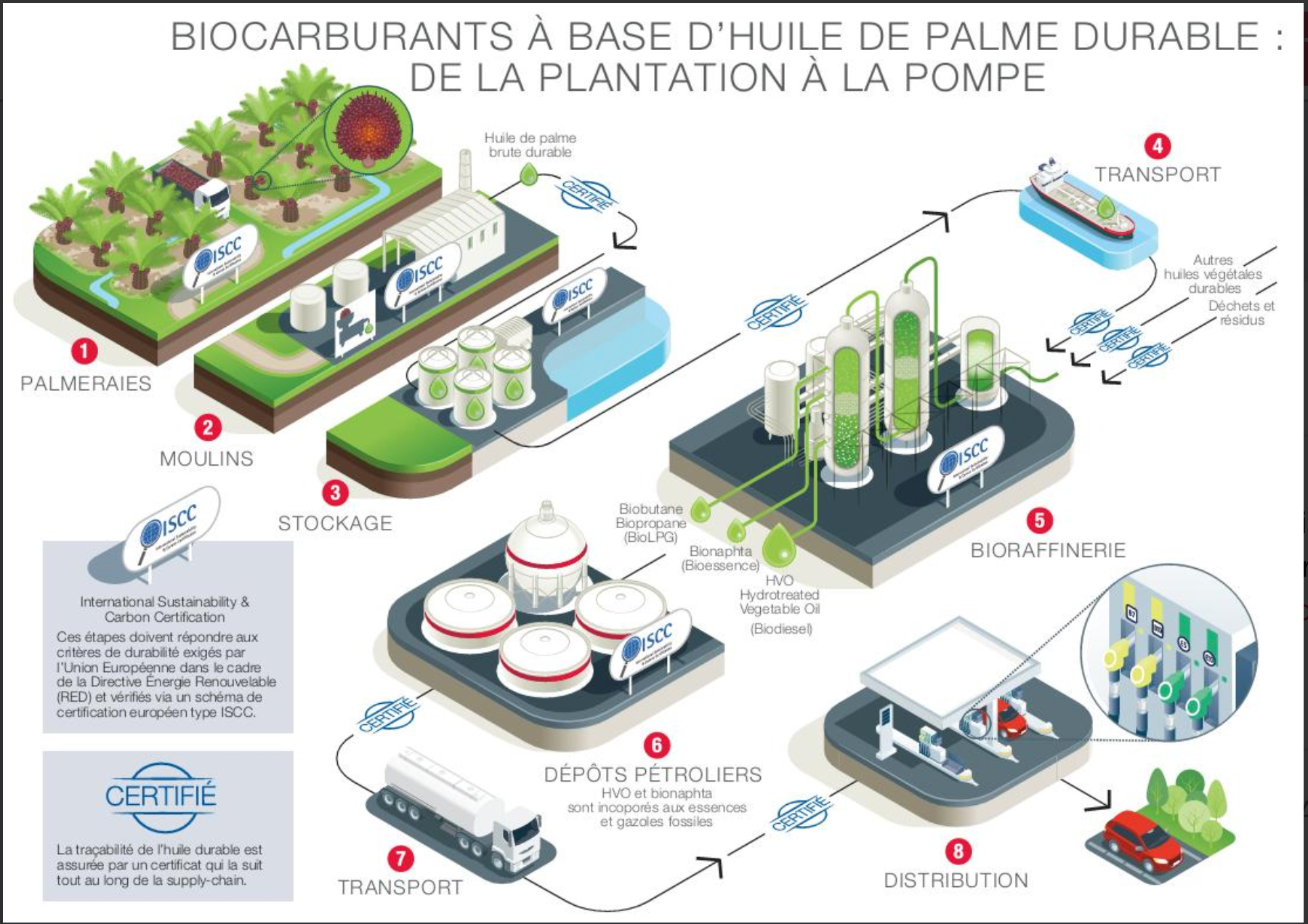Total announced last week that it has finally started up production of renewable diesel at its La Mède biorefinery in southeastern France, with the first batches of biofuel coming off the line. The biorefinery will produce 500,000 ton/year of hydrotreated vegetable oil (HVO) both for biodiesel and biojet fuel.
The La Mède site was formerly an oil refining complex which was remodeled to produce biofuels after a decision in mid-2015 by Total to avoid closure of the site after a deteriorating economic environment for petroleum oil in 2013 and 2014. Crude oil processing halted at the end of 2016 at La Mede as the company invested more than €200 million to transform the La Mède refinery and, in particular, create France’s first biorefinery. In late 2016, Total signed a voluntary economic and social development agreement of €5 million with the French state, the PACA region and the AIx Marseille-Provence metropolitan area. The agreement provided for a variety of measures including employment initiatives and support for sub-contractors and new industrial projects for the Etang-de-Berre Fos-sur-Mer area. As part of La Mède’s repurposing, 65% of orders were made with local businesses, representing 800 jobs and €142 million.
The biorefinery’s planned start-up almost hit a snag when the revision of the EU Renewable Energy Directive (RED2) leads to the tightening of the use of palm oil from Southeast Asia for biofuel production. As part of an agreement with the Government in May 2018, Total has pledged to process no more than 300,000 tonnes of palm oil per year — less than 50% of the total volume of raw materials needed — and at least 50,000 tonnes of French-grown rapeseed, creating another market for domestic agriculture.
According to Total, around 60-70% of its biofuel feedstock will come from 100% sustainable vegetable oils such as rapeseed, palm, sunflower, etc., while the rest will be from treated waste oils such as animal fats, cooking oil, residues, etc. All the oils will be certified sustainable to EU standards using the ISCC-type certification.
As part of its palm oil procurement process, Total also added its own tighter controls and auditing of sustainability and respect for human rights to certification. The company said it publishes the list of mills from which its palm oil is sourced on the La Mède complex website for each delivery.
Total also touted its more than €500 million investment on advanced biofuel R&D within the last decade as the company examines different biomass conversion pathways such as thermochemical, biotechnology and algae. Some of its recent partnerships include BioTfuel, Novogy and Renmatix.
The La Mède complex also now includes an 8 MW solar farm; a unit to produce 50,000 cubic meters per year of AdBlue®, an additive that reduces nitrogen oxide emissions from trucks; a logistics and storage hub with a capacity of 1.3 million cubic meters per year; and a training center.

Discussion
Comments are closed.